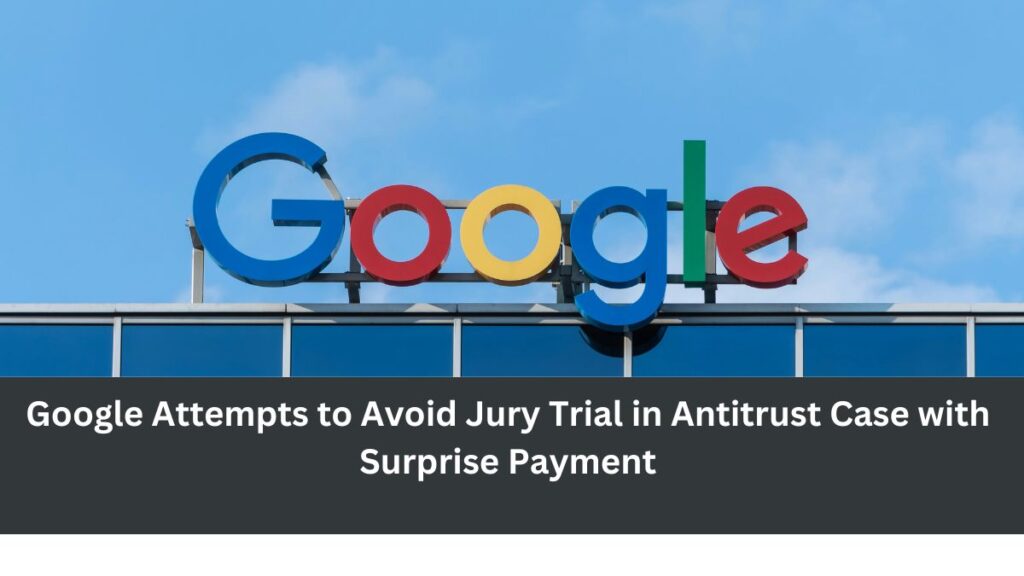Background on the Antitrust Lawsuit
In a surprising twist to the ongoing antitrust lawsuit brought by the U.S. Department of Justice against Google, the tech giant has preemptively paid damages to the government in an effort to sidestep a jury trial. The lawsuit, filed last year by the DOJ along with several states including Virginia, alleges that Google has been stifling competition in the digital advertising space and engaging in anticompetitive practices with its ad manager suite.
Google has vehemently denied these allegations from the start. However, their recent move to proactively pay damages, the amount of which remains undisclosed, is a highly unusual tactic aimed at avoiding having the case heard before a jury. By eliminating the monetary damages claim, Google contends that the government no longer has the right to a jury trial, regardless of whether they accept the payment or not.
The Debate Over Jury Trials in Complex Antitrust Cases
The question of whether complex antitrust cases like this one should be decided by a jury or a judge is a contentious issue among legal experts. Stanford Law School professor Mark Lemley expressed skepticism about Google’s strategy, noting that juries could potentially award higher damages than the amount Google has put forward. “Antitrust cases regularly go to juries. I think it is a sign that Google is worried about what a jury will do,” Lemley told Reuters.
On the other hand, University of Pennsylvania law professor Herbert Hovenkamp sees merit in Google’s approach. In a post on X (formerly Twitter), Hovenkamp argued that juries are ill-equipped to handle highly technical cases and lack the authority to order a company breakup, which is one of the potential remedies sought by the DOJ. “Juries are bad at deciding technical cases, and further they do not have the authority to order a breakup,” he wrote.
Google’s Recent Antitrust Trials and Outcomes
This is not the first time Google has faced antitrust scrutiny in recent months. The company has been involved in two other high-profile trials, with contrasting outcomes and trial formats.
In a case brought by “Fortnite” creator Epic Games, a jury in San Francisco found that Google had illegally barred competing Android app stores and forced developers to use its payment system for in-app purchases. This case demonstrates the potential risks for Google in having antitrust matters decided by a jury.
Meanwhile, in a separate case heard in Washington, D.C., a federal judge is currently weighing allegations that Google has unlawfully stifled competition in the web search market. Closing arguments were heard earlier this month, but a ruling has not yet been issued. This case, tried before a judge, highlights the alternative to a jury trial that Google is now seeking in the DOJ lawsuit.
The Potential Implications and Next Steps
The DOJ has not yet indicated whether it will accept Google’s preemptive damages payment, and the department declined to comment on the recent court filing. The government will have an opportunity to respond to Google’s arguments before a judge considers the matter at a hearing scheduled for June 21 in Alexandria, Virginia.
The outcome of this hearing could have significant implications for the future of the antitrust case and Google’s legal strategy. If the judge agrees with Google’s argument that the payment eliminates the need for a jury trial, it could set a precedent for other companies facing similar lawsuits to attempt the same tactic.
Regardless of the trial format, the stakes remain high for Google. The DOJ is seeking substantial remedies, including the potential forced sale of Google’s ad manager suite. A ruling against the company could lead to major changes in its business practices and a reshaping of the digital advertising landscape.
As the legal battle continues to unfold, it will be closely watched by industry experts, lawmakers, and consumers alike. The case has the potential to redefine the boundaries of acceptable competitive behavior in the tech industry and could have far-reaching consequences for Google and its rivals.
With the trial set to begin in September, all eyes will be on the Virginia courthouse to see how this critical antitrust case is ultimately resolved. Will Google’s gambit to avoid a jury trial pay off, or will the company face the judgment of its peers? Only time will tell, but one thing is certain: the outcome of this case will have a profound impact on the future of digital advertising and the tech industry as a whole.

